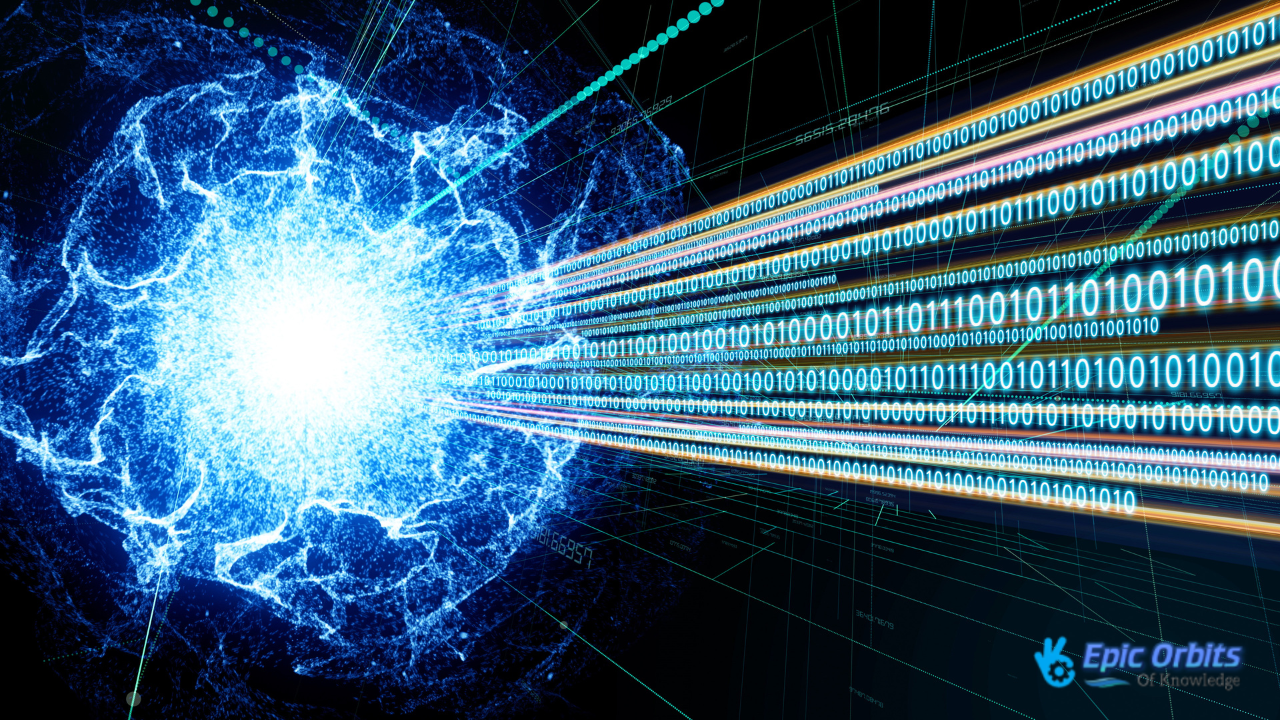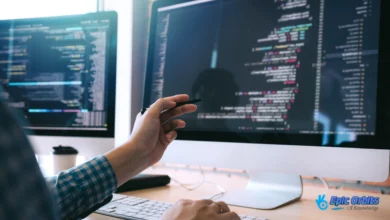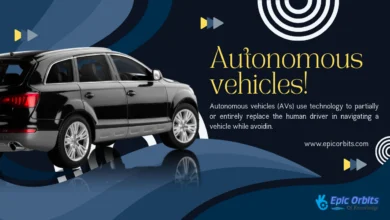Quantum Mechanics Revolutionizing Future Technologies 2025
Quantum mechanics is a branch of physics that deals with the behavior of matter and energy, such as atoms and subatomic particles.

2025 will be the International Year of Quantum Science and Technology, designated by the United Nations. This is so because many sectors are going to undergo change under quantum mechanics. Quantum computers can perform intricate computations much quicker than previous computers.
Working on quantum computers includes big names like Google, IBM Q, and Rigetti. The most often used technology is superconducting qubits. This makes the direction of innovation incredibly fascinating.
Let us investigate the essence of quantum mechanics. It will affect our operations in disciplines such as supply chains, finance, manufacturing of drugs, and data security. Thanks to large corporations and investors, quantum computing is drawing more funding. This brings a universe of fresh opportunities.
The Mind-Bending Universe of Quantum Mechanics
Ideas presented in quantum physics challenge our conventional wisdom about reality. It demonstrates how particles may behave. This theory, which is key in quantum mechanics, has been extensively investigated. s, has been extensively investigated. ics has been extensively investigated.
Quantum physics governs the behavior of the smallest objects, including matter and energy. Usually, physics does not apply at these small levels. Rather, strange and hapless events occur. Learning quantum mechanics has improved our grasp of small particles. It has spawned fresh technology as well.
- Wave-particle duality Superposition refers to the ability of a particle to exist in multiple states simultaneously. The ability of a particle to exist in multiple states simultaneously is remarkable.
- ability of a particle to exist in multiple states simultaneously.
- Entanglement is the enormous capacity of particles to interact and link themselves even at enormous distances.
Grasping the quantum world requires these concepts. They have helped produce fresh technologies like secure messaging and quantum computing.
Wave-Particle Duality: Should Physics Experience an Identity Crisis?
A fundamental notion in quantum physics is wave-particle duality. It demonstrates how particles such as photons and electrons could behave like waves or individual entities. This conc It states that we cannot simultaneously know certain properties of particles, such as their location and speed. certain properties of particles, such as their location and speed.
However, this concept has a significant influence and has been extensively investigated in the field of quantum computing. Particles in quantum computing may exist in many states concurrently.
Like the double-slit experiment, several tests show that electrons have wave-like behavior. This alters our perspective on the environment and the quantum-level behavior of particles. The Heisenberg uncertainty principle explains the reasons for our inability to precisely quantify various aspects of particles. It finds use in quantum mechanics and codemonstrates the potential for electrons to exhibit wave-like behavior
- Observation demonstrates the potential for electrons to exhibit wave-like behavior.
- The double-slit experiment delimits our ability to precisely measure its wave-like behavior.
- The Heisenberg uncertainty principle limits our ability to precisely measure certain particle features.
Understanding quantum physics and quantum computing relies on these concepts. They also have significant consequences for newly developed This thought experiment demonstrates how a quantum system can exist in multiple states simultaneously.
This thought experiment demonstrates how a quantum system can exist in multiple states simultaneously.
experiment Schrödinger's cat This thought experiment demonstrates how a quantum system can exist in multiple states simultaneously. A key component of quantum physics, the Schrödinger equation forms the foundation of this concept.
1935 saw the creation of the thought experiment. It was intended to illustrate the weird side of quantum physics when applied to daily objects.
An essential concept in quantum physics is quantum superposition. A quantum system may therefore be in several states simultaneously. This is not true of classical mechanics, in which an object In reality, many real-world systems exhibit superposition.
is superposition. It informs us of the fact that, in reality, many real-world systems exhibit superposition.
One instance of quantum superposition is Schrödinger's cat. In reality, many real-world systems exhibit superposition. These span photons, electrons, and even large molecules.
Scientists have, for instance, created a “cat state” using photons. They have also caught a beryllium ion in a superposed condition. These tests demonstrate atomic- and subatomic-level quantum mechanical behavior.
Big advancements in quantum mechanics have come from research on quantum superposition. Key for quantum computing, quantum cryptography, and more is superposition. Enormous research reveals even more fascinating applications of quantum mechanics.
quantum entanglement: atomic-level spenormousating
Quantum entanglement is the phenomenon whereby particles join together and may influence one another even at enormous distances. Enormous tests have been conducted on this theory. Alain Aspect's 1982 work, for instance, revealed how photons may link across enormous distances.
Big changes in our usage of computers and message delivery might result from this phenomenon. Over 1,200 kilometers separate the paired photons. Using a satellite, scientists even connected six million pairs of photons.
Important information about quantum entanglement includes:
- Companies like IBM and Google are developing quantum computers.
- Quantum computers might be thousands of times faster than the fastest computers of today.
- Quantum predictions have been true for over a century.
These might alter disciplines like medical imaging and cryptography.
As our understanding of quantum entanglement grows, big tech innovations will manifest themselves. It could change our calculations and approach to communicating. Quantum entanglement is a fascinating field that will affect our scientific and technological direction.
Heisenberg Uncertainty Principle: Perfect Hide-and-Seek Game in Nature
Among the basic ideas in quantum physics is the Heisenberg uncertainty principle. It says certain information about a particle cannot be known simultaneously. Originally brought up in 1927, German physicist Werner Heisenberg proposed this idea.
Measuring the location of a particle alters its momentum according to this idea. And gauging its momentum alters its location. This makes knowing both at once challenging. Understanding the quantum world calls for this kind of thinking.
The Heisenberg uncertainty principle has certain salient features that apply to all sorts of particles, from electrons to large molecules: It indicates a restriction on our ability to quantify certain aspects of particles. Developing technologies like quantum computing and cryptography depends on it. In quantum physics, this is a major theory that scientists still debate extensively.
Quantum Mechanics: bits acquiring quantum superpowers
A brand-new technology called quantum computing makes use of qubits, unique bits. Numerous states at once are possible for these qubits. This allows quantum computers to manage a lot of data concurrently.
Quantum theory makes this feasible. It allows qubits to retain certain kinds of information. The computer can do even more when additional qubits are added.
Quantum computers offer great promise. In medicine, finance, and more, it may assist. It may, for instance, replicate intricate networks. Big developments in robotics and AI: scientists are developing new algorithms and methods of error correction.
Computers remain a difficulty. Scientists are developing new algorithms and methods of error correction. Getting it perfect might take decades.
IBM has displayed a quantum computer called Condor. Its qubit count is above 1,000,000. This marks a major advancement.
IBM's Condor is really significant. It reveals the distance quantum computing has come from. However, ensuring the dependability of quantum computers would need even more qubits and less noise.
Many spheres will improve thanks to quantum computers. They will assist in robotics, artificial intelligence, finance, and technological sectors. Their working speeds are really high.
Is this knowledge RF? 2.92 mm connectors, for instance, can run signals up to 40 GHz. For quantum computers especially, this knowledge is crucial. Quantum computing will become ever better as our knowledge grows. In finance and health, we could witness major transformations.
Your Guide on Uses of Quantum Mechanics Technology
Many sectors, including medical imaging and encryption, are being transformed by quantum technology. It answers practical issues using quantum physics and computation. Investors poured $1.8 billion into quantum computing in 2022, a sharp increase from 2019.
Quantum computers might revolutionize our handling of economics, medical pictures, and security. For instance, quantum key distribution (QKD) establishes secure communication channels. Furthermore, vast amounts of data can be easily handled by quantum algorithms for learning.
Like QKD, quantum technology helps establish safe channels of communication. Thanks to quantum physics, access to these channels is difficult. This might affect our methods of data security.
Furthermore, advancing medical imaging is quantum technology. It might enable more precise and earlier diagnosis of illnesses. New medical discoveries might result from the ability of quantum-enhanced instruments to potentially help identify gravitational waves.
Moreover, changing finance is quantum technology. It comprises massive data analysis and quantum algorithms for learning. More precise financial forecasts and improved decision-making might follow from this.
The Future of Quantum Mechanics in Everyday Life
Quantum physics is changing how we live, from making gadgets better to helping in healthcare. The idea of wave-particle duality is being used to create new technologies. These will soon be a big part of our daily lives.
Quantum mechanics will greatly impact medical imaging. New MRI techniques use diamond defects as quantum processors. They promise to be thousands of times more precise than today's tech, almost reaching atomic size. This will help doctors diagnose diseases better and find targeted treatments.
Some of the key applications of quantum mechanics in everyday life include
- Enhanced precision in medical imaging, such as MRI machines that can image individual hairs
- Improved drug discovery processes through quantum computing
- Increased efficiency in solar cells, which operate on the photovoltaic effect explained by the quantum nature of light
- Advanced materials science, enabled by the understanding of quantum mechanics and its effects on material properties
As quantum technology gets better, it will change many parts of our lives. From cooling atoms to near motionlessness to keeping entanglement for quantum computing, the future is bright. Quantum mechanics will make healthcare, energy, and materials science much better.
Preparing for the Quantum Revolution
The International Year of Quantum Science and Technology is here. It's a big deal for quantum computing and quantum theory. The United Nations has declared 2025 as this special year. This shows the world is excited about quantum tech.
To get into quantum tech, you need to know quantum mechanics well. You also need to know how to program. Quantum computing will change many fields, like drug making, supply chains, finance, and keeping data safe. The Chicago Quantum Exchange is working hard to make quantum tech better.
Essential Skills for the Quantum Age:
- Strong foundation in quantum mechanics
- Programming skills in languages such as Q# or Qiskit
- Understanding of quantum computing fundamentals, including qubits and superposition
Quantum tech is growing fast, and so are the jobs. You can work in research, teaching, or making policies. The National Quantum Initiative and the United States Innovation and Competition Act are helping quantum research. Quantum computers will soon be much faster than today's computers.
MIT xPRO's Quantum Computing Fundamentals program is helping people get new jobs. 42% of its students got new jobs, moved to other companies, or got promoted. With the right skills, you can be a leader in this new field.
| Industry | Impact of Quantum Computing |
|---|---|
| Drug Development | Simulating molecular interactions to discover new drugs |
| Supply Chain Optimization | Optimizing logistics and supply chain management |
| Finance | Simulating complex financial models and optimizing portfolios |
| Cybersecurity | Developing unbreakable encryption methods |
Typical Mistakes Regarding Quantum Physics Corrected
Many misconceptions about quantum physics result in many myths. One misconception holds that quantum physics is too difficult to understand. Its arithmetic is basic, nevertheless, and topics like superposition and entanglement call for just high school math.
Still another fallacy is that nature is not local. Bell's theorem, however, demonstrates that nature cannot be both real and local simultaneously if certain laws are valid. Notwithstanding these legends, physicists are quite good at predicting quantum phenomena. This was shown by Alain Aspect, John Clauser, and Anton Zeilinger's work on quantum mechanics earning the 2022 Nobel Prize in Physics.
Some typical misunderstandings about quantum physics include:
- Quantum mechanics is essentially unreadable.
- Nature does not have local character.
- Quantum teleportation lets physical matter be transferred.
Many innovations like quantum computing and teleportation have come from quantum mechanics. Though they look complicated, these concepts draw on quantum physics. We may grasp quantum mechanics by means of research.
Ultimately, quantum physics is not as enigmatic as first impressions. Understanding quantum mechanics will help us to dispel misconceptions and appreciate the elegance of quantum physics.
Conclusion
We have dug into the fascinating field of quantum mechanics. We clearly are about to make a significant technological breakthrough. Although quantum computing has great promise, it may not become widely used until the early 2030s. It might alter everything, including how artificial intelligence operates and how we protect data.
Leading companies like Google, IBM, and Microsoft are lavishly funding quantum research. They understand its great importance. For instance, Google revealed in 2019 that even the fastest ones, quantum systems, may do tasks not possible for traditional computers.
Keeping current is very essential as we enter the quantum age. Accepting this modification will enable us to fully apply quantum mechanics. It will create fresh avenues of invention and transform numerous sectors. Time is to engage in; the future is quantum.



